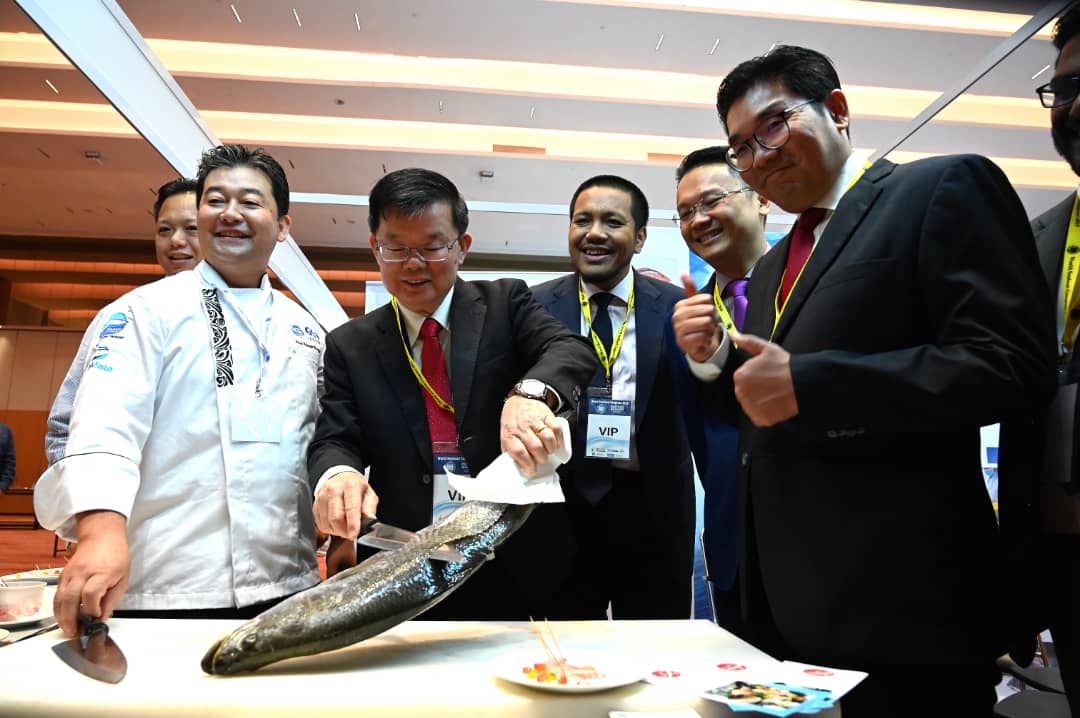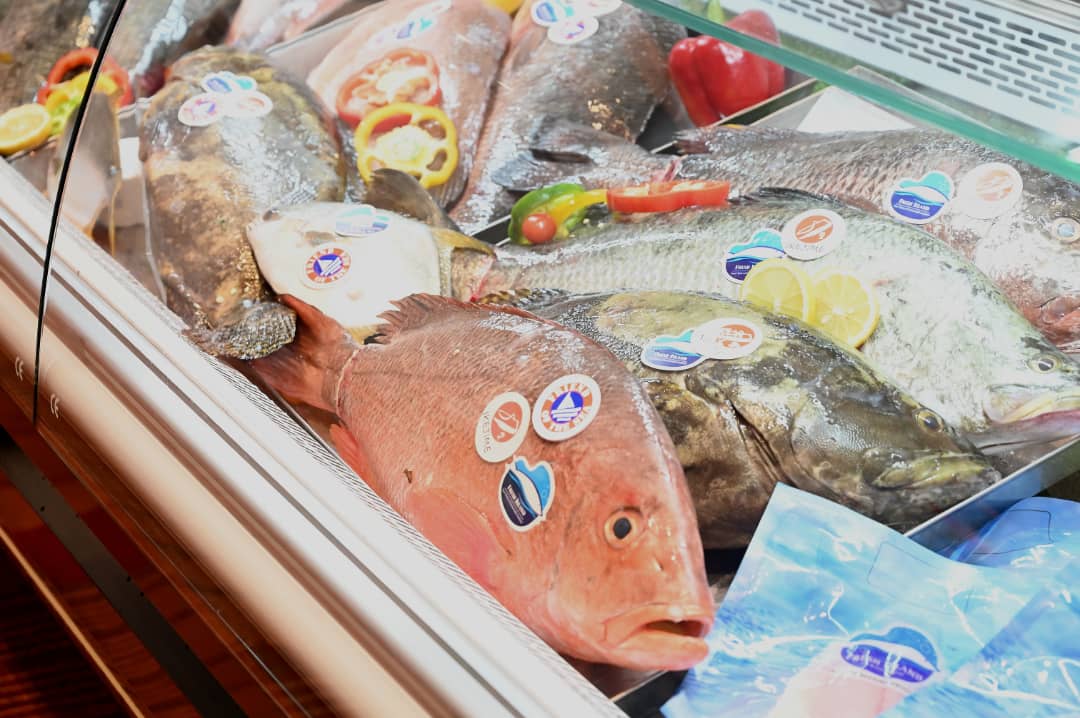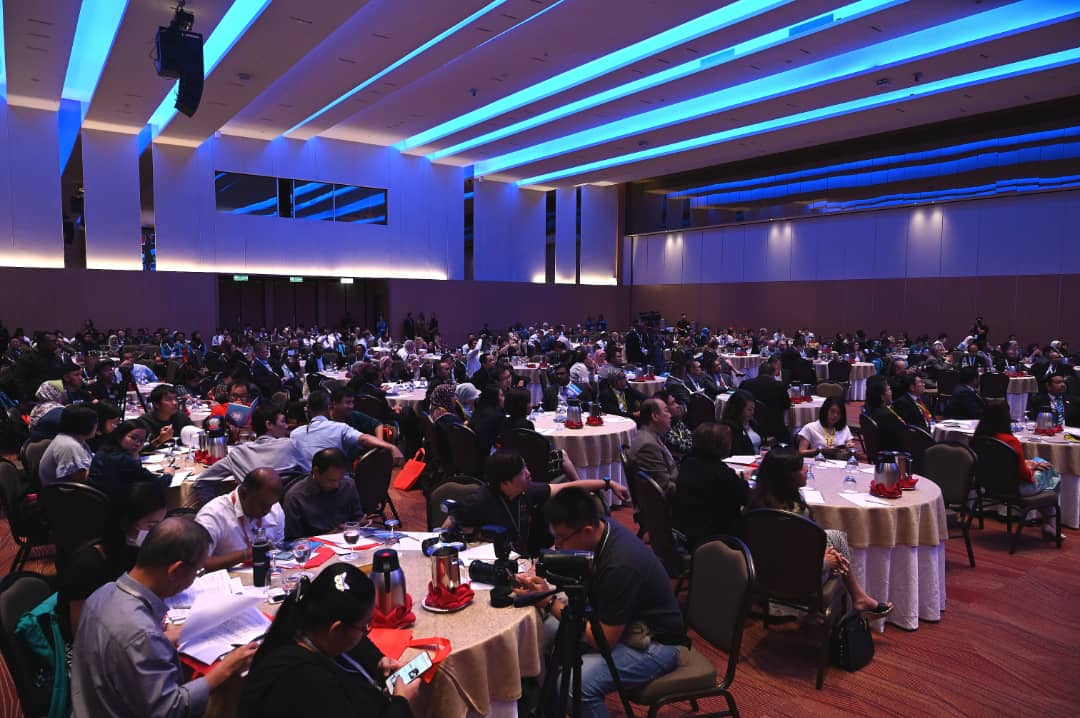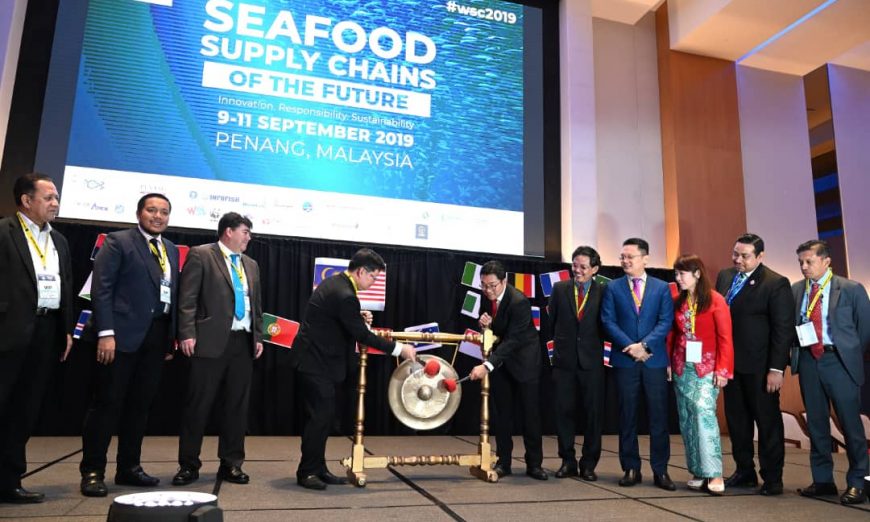WITH population growth and depleting fish stock, the aquaculture sector is potentially the source to meet future demand for fish.
Chief Minister Chow Kon Yeow said future scenarios showed that production from marine-capture fisheries on the west coast of Peninsular Malaysia might become unreliable since many fish stocks were already over-exploited.
“Various means of increasing production through aquaculture are now being explored,” Chow said in his speech at the World Seafood Congress at the Setia SPICE Convention Centre today.
“During the last two decades, aquaculture fisheries in Penang have grown significantly at an average annual growth rate of 4.6% and 15.9% in production and value respectively. In 2017, the aquaculture production in Penang gained the highest wholesale value in the country.
“Although aquaculture offers an alternative to over-fishing, many aspects of aquaculture need enhanced scientific knowledge and technological advancement to become a sustainable source of food and an income generator.”

Chow said Penang has contributed RM1.67 billion out of the RM3 billion revenue for the country in the aquaculture sector.
He said in 2017, Penang’s food fish sector, which consists of marine-capture fisheries, aquaculture fisheries and inland fisheries, produced about 97,000 metric tons, valued at RM1.4 billion. Currently, the wholesale value of Penang’s food fish production is ranked third in the country, after Perak and Kedah.
Malaysians, he said, are among the top fish consumers in the world – consuming about 57kg of fish per person each year.
He said Penang has the potential to become a centre for fisheries and aquaculture R&D and produce high value-added fish and fish-based products because of the concentration of research facilities and world-renowned research institutes located here such as the Worldfish Centre, the Fisheries Research Institute, and the Centre for Marine and Coastal Studies (CEMACS) of Universiti Sains Malaysia.
Chow added that in line with Penang2030 vision, the state was aiming to modernise and diversify agricultural production to position Penang as a high-tech Green Valley and aquaculture industrial zone.

“The seafood industry should be kept as sustainable as possible. We need to build a more sustainable relationship with our oceans, as they are vital for food security, economic growth and sustainable livelihoods.”
Also present at the congress were Deputy Agriculture and Agro-based Industry Minister Sim Tze Tzin, Penang Institute executive director Datuk Dr Ooi Kee Beng, who is also the local-host of the World Seafood Congress 2019, Fisheries Department director-general Datuk Munir Mohd Nawi, International Association of Fish Inspectors (IAFI) president Mark Boulter (who is the owner of the World Seafood Congress), CEMACS director Prof Datuk Dr Aileen Tan, Penang Convention & Exhibition Bureau chief executive officer Ashwin Gunasekaran, state executive councillors Datuk Abdul Halim Hussain, Dr Afif Bahardin and Yeoh Soon Hin.
Sim said Malaysia would be moving to high sea fishing, especially tuna fishing in the Indian Ocean, since this was passed by Parliament in its last sitting.
“This is a new sector that we want our industry players to get into. We will help them get the licence from the Indian Ocean Tuna Commission,” Sim told reporters.
He said Penang and Langkawi are the two ports allowed to land tuna fishing.
Sim said Malaysia is one of the world’s largest producers of fisheries products through capture fisheries, being ranked at 16th in the world and sixth in Asean and came 15th and sixth in aquaculture production in the world and Asean respectively.
“Malaysia is a big exporter of seafood, not just fish but also shrimp, prawn, lobster, seaweed and ornamental fish,” he added.
He said Penang is the only state in Malaysia to achieve 50% aquaculture and 50% capture fisheries.
Sim said climate change and growing population are two serious problems facing the fishing industry.
He said his ministry would be assisting aquaculturists in Penang to “come back” after suffering heavy losses of over RM50 million when Typhoon Lekima hit the northern states.

“Just the tailend of the typhoon was enough to almost wipe out the whole aquaculture farming in Sungai Udang. We will help them repair their farms,” he said.
He also said a lot of dead fish were also found in Teluk Bahang and Batu Maung in Penang and Johor Baru.
“The demand for seafood is getting higher because of the growing population and the depletion of fish stock. These are two big issues the congress will be tackling. That’s why we have the experts, scientists, policymakers as well as industry players come together to look for solutions,” Sim said.
Some 350 attendees from 41 countries are participating in the congress from today till Sept 11. Penang is the first in Asia to hold the congress.
In conjunction with the congress, there are 40 exhibitors showcasing their products and services.
Story by K.H. Ong
Pix by Chan Kok Kuan
Video by Alissala Thian

